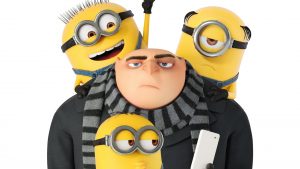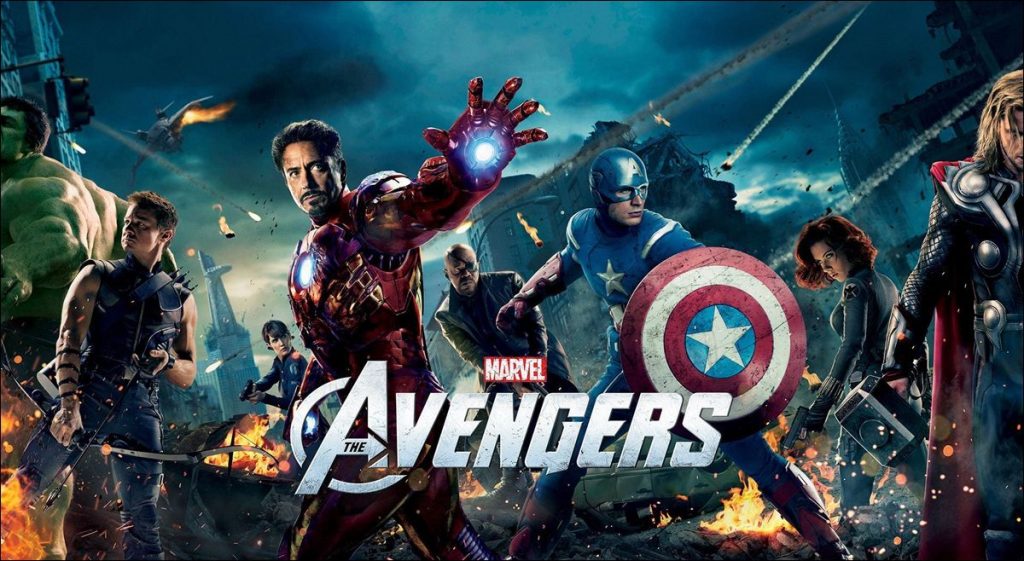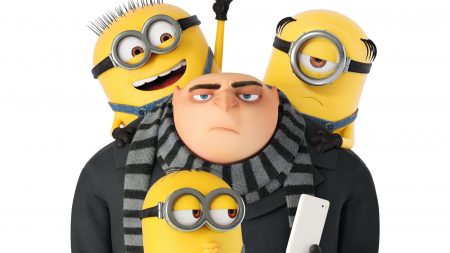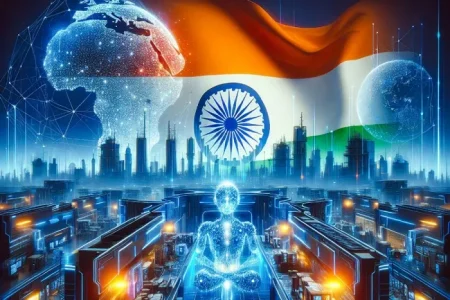Marvel films have changed dramatically since their origin as a sci-fi genre, turning away from science to embrace magic and fantasy says Satyen K. Bordoloi who tells us that what is good for the franchise may not be so for the world
In the 2008 film Iron Man, after Tony Stark gets inside his suit for the first time, he decides to test it. Jarvis, his Artificial Intelligence assistant, complains since there are terabytes of calculations remaining before an actual flight. But Stark says, “Jarvis, sometimes you gotta run before you can walk.”
That line was prophetic because fifteen years since it was shot, technology has progressed so far that most things shown in Iron Man – digital AI assistants, robots with AI brains that execute voice commands, intuitive computing, 3D tactile interfaces to design things, and even the flying suit – have come true to a great extent.
In hindsight, Iron Man wasn’t as much a science fiction film as a vision of our scientific future that also launched history’s most successful film franchise with $30 billion made in 15 years. The rest of the Marvel Cinematic Universe, or the MCU as it is affectionately called, has mostly stayed on the scientific path laid out by Iron Man.
There was a scientific explanation for Hulk, Ant-Man introduced the quantum world, Captain America was created by a scientific formula, Wakanda in Black Panther is a scientific not magical, utopia, and Spider-Man’s powers came from science not a magical, radioactive spider. Even the first, most unscientific of them, the ‘god’ Thor travels through a ‘Bifrost Bridge’ which is explained as an Einstein-Rosen Bridge.
Recently though, the MCU has taken a tremendous but barely noticeable U-turn, and from a sci-fi genre, it’s turned to fantasy with science becoming a mere salad dressing conveniently ignored in the newest MCU creations. E.g. in its latest Doctor Strange in the Multiverse of Madness, the word ‘magic’ is used eight times, the word science, zero.
Why should it matter, one would ask?
The films continue to be fun working on the same basic trope: ‘superhero saves the day’ with the ‘day’ being the world, planets, galaxy, and now Doctor Strange saves not one, but multiple universes. It matters because in the old Marvel films ‘how’ one saves the day, is sometimes more important than the what.
Iron Man uses science to solve his and the earth’s problems. He works hard and risks his own life with his inventions that often fail. The reason why so many of Iron Man’s inventions have come to life is because they were grounded in actual science to begin with and its beautiful storytelling inspires people to create them as they are achievable e.g. every one of the half a dozen-odd flying suit being tested including the ones designed to save lives in mountainous terrains – were created by men and women who claim to have been inspired by Iron Man.
What will these people be inspired by after watching the latest Doctor Strange? How to find the magical Darkhold in Mount Wundagore?
In the new Marvel films, Iron Man’s formula of ‘science the shit out of something’ has given way to ‘meh, let’s just magic our way out’. It is as if killing Iron Man / Tony Stark was necessary for ‘Avengers: Endgame’ to make the transformation from science to magic complete. MCU till 2019 was mostly a sci-fi genre, now it is almost entirely a fantasy genre with scientific pretences.
Point is, why should we bother?
Films matter. Not just ‘cinema’ that directors like Martin Scorsese so passionately rant for, but commercial cinema with its tremendous power over the mind of the masses matters more. The first global blockbuster, ‘Birth of a Nation’ – the most bigoted, pure propaganda bile if there ever was one – revived the Klu Klax Klan which was on the ventilator when it came, and regressed America again.
For a century and a quarter, films have not only influenced culture, civilization, and politics, it has inspired people to change their lives, given them new direction and in the case of sci-fi, have inspired kids to first aspire and later become scientists and innovators who changed the world.
Thus while people like Scorsese might crib as much as they want, some kid in Aizawl wants to understand quantum physics after watching the highly underrated Ant-Man, a black girl in Zambia is dreaming of becoming like Shuri, the scientific-minded, super smarter sister of Black Panther.
Let us also not forget that most of the old MCU films were covertly political. Iron Man was a scathing, though indirect, commentary on American geopolitics, its ‘war on terror’ in the middle east. ‘Captain America: Civil War’, came at a time when Donald Trump’s rhetoric was splitting USA in two camps. Black Panther was about the pride of a continent robbed for over 500 years by the western world and gave repressed Africans – old and new – hope and pride.
There is little of that in the recent Marvel films. Though the biggest hit since the pandemic, ‘Spider-man: No Way Home’ plagiarised itself by copying the wonderful Oscar-winning animation film ‘Spider-Man: Into the Spider-Verse’. ‘Eternals’ was about magical beings, though they in the end do sound like robots with AI. ‘Shang-Chi and The Legend of The Ten Rings’, instead of taking the ‘Black Panther’ route to explore the amazing scientific and philosophical history of China, borrowed its magic and mythology. The latest Doctor Strange feature is lost in its own magical multiverse – turning a discarded theory of Quantum Physics into magic.
These films are not bad. The secret superpower of Marvel films, over even the DC universe, has always been its writing. Despite using clichéd tropes, most Marvel content is beautifully crafted. But in needing to make things bigger, Marvel has painted itself into a corner. What needs to be saved in Iron Man, ‘iron’ically, wasn’t really the world. Iron Man, at the core of it, was about a man saving himself, the reason why everyone could relate so much. Now, Marvel heroes have to save not just worlds, planets or galaxies, but universes.
In the old, unforgettable MCU films, even fantasy – like the gigantic head of an ancient god being mined in ‘Guardians of the Galaxy’ – was shown from the point of view of science. Now, even science – like the very multiple universes concept which is the basis of many of its latest films – is shown from the POV of fantasy. In the upcoming ‘Thor: Love and Thunder’ even the brilliant scientist Jane Foster, becomes a magical god, as if sealing the fate of the MCU forever in favour of fantasy.
Is there anything wrong with what Marvel is doing? No. In cinema, there’s no right or wrong, only what works and what doesn’t. Clearly, the Marvel films work with the masses. But what is lamentable is that not so long ago, they also did so much more than entertain to make money. They made films that intrigued us enough for us to remember. Today, as the writers and directors scrape the Marvel barrel for ideas, as an audience we are busy watching and quickly forgetting them.
In case you missed:
- Hey Marvel, Just Admit You’re Using AI – We All Are!
- What are Text-to-Video Models in AI and How They are Changing the World
- How Lionsgate-Runway Deal Will Transform Both Cinema & AI
- The Rise of Personal AI Assistants: Jarvis to ‘Agent Smith’
- Tears of War: Science says women’s crying disarm aggressive men
- When Geniuses Mess Up: AI & Mistakes of Newton, Einstein, Wozniak, Hinton
- Quantum Leaps in Science: AI as the Assembly Line of Discovery
- Are Hallucinations Good For AI? Maybe Not, But They’re Great For Humans
- How Old Are We: Shocking New Finding Upends History of Our Species
- A Teen Suicide Spotlights Dangers of Unregulated AI Companions










2 Comments
Sorry, MCU etc are comic book fiction stories. They’ve NEVER been science fiction, just becase there’s a modicum of scientific concepts in a story doesn’t make it science fiction. Using that defininition makes any (non documentary) genre of film that involves balistic weapons (guns) science fiction, as they include science and are fictional stories. Science Fiction is a genre where science is the very centre of the story, specifically the envisioning of what future science (or fictional science – hence the name!) would be and how that directly impacts the story line. Stephen Baxter is Science Fiction, Issac Asimov is Science Fiction, Robert Heinlein is Science Fiction, Ben Bova is Science Fiction, Iain M Banks is Science Fiction. Willian Gibson is Science Fiction. What some comic writer comes up with is pure fantasy, not Science Fiction. The closest a comic has ever come to being Sci-Fi was 2000AD (the comic that gave us Judge Dredd – which yes is Science Fiction), but not all stories in 2000AD were Sci-Fi.
Multiverse travel is based on Kardashev scale theory so if you think Kardeshev theory is fantasy than MCU is fantasy.